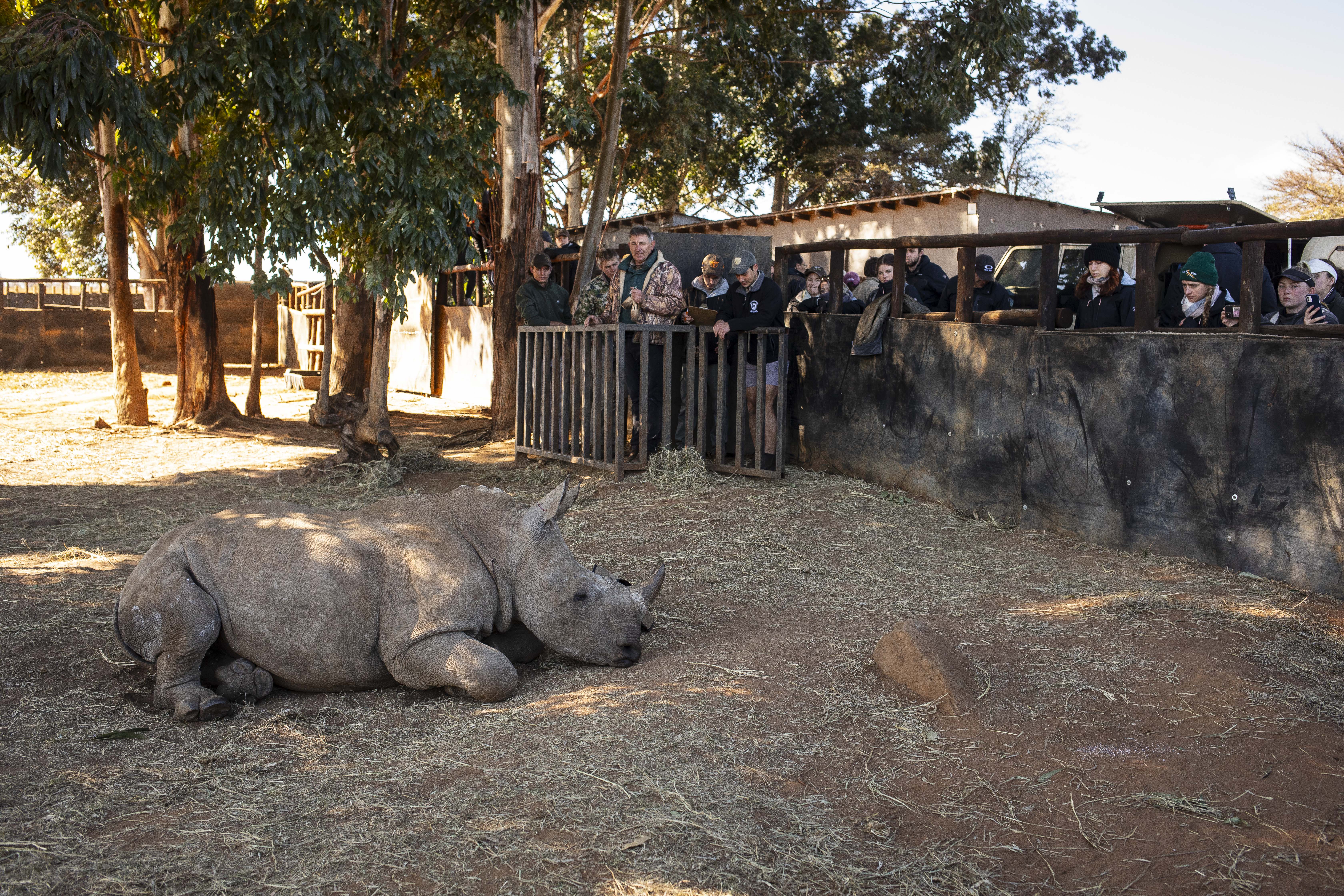South Africa and neighbouring Namibia and Botswana have for decades struggled to control the poaching of rhinos whose horns are prized for jewellery and traditional medicine in some east Asian countries.
Between Jan. 1 and June 30, 231 rhinos were killed in South Africa for their horns - made primarily of keratin, a protein also found in human hair and fingernails - 28 fewer than the same period last year, South Africa's environment ministry said.
The ministry said joint efforts involving law enforcement agencies, customs officials and private security had led to the conviction of poachers, but continued demand for the horns meant the threat to the rhino population persisted.
Rhino poaching often involves international criminal syndicates that rely on the help of local poachers.
Increased surveillance and de-horning programmes in the famous Kruger National Park drove poachers last year to turn their focus to provincial parks and private reserves.
That trend has continued in 2023, the ministry said, with 143 rhinos killed in the KwaZulu-Natal province and 46 in private reserves.
The government said it has set up tactical centres, in addition to increasing services provided to rangers on healthcare, training and counselling to discourage them from colluding with criminal gangs.
South Africa is home to nearly half of the critically-endangered black rhino population on the African continent and to world's largest population of near-threatened white rhinos.
(Reporting by Bhargav Acharya; editing by Barbara Lewis)





 Darted white rhino calf slowly stands up after the darted tranquillizer administered to him wares off, at a private game reserve near Polokwane, South Africa, 12 July 2023 (Issued on 13 July 2023). The calf was attacked by a lion when he was younger and is suffering from tendon damage on his rear right leg. The vets took a plaster cast of his leg to ultimately make him a prosthetic leg in order for him to walk as naturally as possible. The entire operation was monitored by veterinary students from around the world as part of the annual SYMCO wildlife veterinary symposium held in South Africa. The aim of SYMCO is to highlight the importance of wild vets on wildlife conservation worldwide and to promote the debate and exchange of ideas within the veterinary community around wildlife conservation. EPA-EFE/KIM LUDBROOK
Darted white rhino calf slowly stands up after the darted tranquillizer administered to him wares off, at a private game reserve near Polokwane, South Africa, 12 July 2023 (Issued on 13 July 2023). The calf was attacked by a lion when he was younger and is suffering from tendon damage on his rear right leg. The vets took a plaster cast of his leg to ultimately make him a prosthetic leg in order for him to walk as naturally as possible. The entire operation was monitored by veterinary students from around the world as part of the annual SYMCO wildlife veterinary symposium held in South Africa. The aim of SYMCO is to highlight the importance of wild vets on wildlife conservation worldwide and to promote the debate and exchange of ideas within the veterinary community around wildlife conservation. EPA-EFE/KIM LUDBROOK